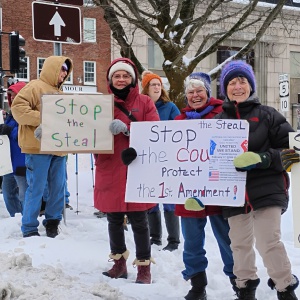My Turn: Systemic racism and our collective humanity

STAFF FILE PHOTO STAFF FILE PHOTO
| Published: 01-02-2025 4:00 PM |
Earlier this year, at a gathering near the coast, I met a photographer who had recently spent some time documenting first-hand the ongoing Palestinian conflict. In our conversation, he asked me, “what can be done to help heal the intergenerational trauma experienced by those who had families directly effected by the Holocaust?”
Given the innumerable socio-political and cultural landmines attached to that issue, I chose the path of least resistance and spoke briefly of trauma being held within the physical body, and mentioned physical meditations (e.g. yoga) as worth looking into for those still plagued by the painful memories of unimaginable loss. However, this superficial answer was given because I felt with emphasis that going a layer deeper would result in him becoming angry at me.
Furthermore, I thought also that had I offered my third response, which perhaps contained the “true” answer, this photographer would experience even more anger, though this time most likely directed at himself.
The second response, as perhaps a most difficult a pill there is to swallow, resides in the harsh contention that events like the Holocaust, the Irish Potato Famine, the transatlantic African slave trade, and all travesties involving specific demographics, are permitted (and sometimes instigated) by the collusion of some of that group who are willing to sell out the rest. Hasn’t it become so second nature for us to lay blame on specific perpetrators when the reality of human selfishness conflicts with our agreed-upon social hierarchy of who in fact are the “real evil-doers?”
This hypothesis unfortunately fits with any group. Those indigenous to this area unfortunately included some who were willing to collaborate and sell their tribe out for individual gain. When children ask the question “why?” do we not furrow our brows and think inwardly, “because of the money?” A perspective such as this has no room in our hero/villain approach to social organization, though have some of us not experienced this in our own lives?
In the microseconds of pondering this response, I then bit down upon my lip even more forcefully to prevent myself from offering the third response; which is (essentially) the viewpoint that we are a collective humanity and the Holocaust is simply the fault of all of us.
Since the bell curve of our collective human IQ hovers frantically over the capacity to tie our own shoelaces, it is no wonder that genocides and systemic evil are often architectured over racial lines. Having seen with my own eyes the racism between white and Black, Japanese and Chinese, and Russian and Kazakh, the algebra of this particular human trait also appears to come in three forms.
Article continues after...
Yesterday's Most Read Articles
 Shelburne Selectboard determines police detective will retain job
Shelburne Selectboard determines police detective will retain job
 Local ‘Hands Off!’ standouts planned as part of national effort
Local ‘Hands Off!’ standouts planned as part of national effort
 ‘She is our future’: Thirty years after permitting women to join, Montague Elks is almost entirely women-led
‘She is our future’: Thirty years after permitting women to join, Montague Elks is almost entirely women-led
 Cooking up an expansion: Cocina Lupita eyes second location in Turners Falls
Cooking up an expansion: Cocina Lupita eyes second location in Turners Falls
 Five UMass Amherst students have visas, student status revoked
Five UMass Amherst students have visas, student status revoked
 Greenfield Historical Commission gives nod to apartment proposal for Main Street
Greenfield Historical Commission gives nod to apartment proposal for Main Street
The first, which is typically the least sinister, is found when one person openly states something negative about another race. We’ve seen this in our 20th-century America, and not too distant from this behavior are the conditions of immaturity and ignorance. Going to the second level are found generalized statements about a certain race, which aren’t always negative, though we have learned that when they are present, systemic racism is not too far behind.
Finally, the last form is reserved for the over-compensatingly positive statements which, though on the surface appear benevolent, are hallmarks of the true racist attempting to disguise their own bias.
Not expecting to witness these first hand in 2024 (unfortunately not too removed from 150 years ago), it grieves me when I still continue to hear people in the American South say things like “such and such people are so uppity.” You can guess which group they are referring to, and you can also guess that the “uppity” behavior that they reference might be deep down a natural response to being spoken down to by a condescending individual.
The second and third forms, surprisingly enough, I actually found within U.S. Rep. Rashida Tlaib’s recent speech at the University of Massachusetts. In the span of mere minutes, I suffered through hearing several statements insinuating that all Arab men hold to the same politic. Sitting in my seat, I thought to ask the person next to me, “Has she spoken to all of them?”
The third form stuck its evil head out in multiple statements attesting her constituents in Detroit to be “the most beautiful black people” imaginable. Surface-level praise does often a hypocrite make, though we are talking about a politician. Will we see a day where the differences between us are put to the side for the sake of our overall collective well-being?
That, in its entirety, is completely up to you.
Amhad Esfahani lives in Greenfield.






 As I See It: How liberty itself killed liberalism in America
As I See It: How liberty itself killed liberalism in America My Turn: Invest in hunger-free campuses to make free college truly work
My Turn: Invest in hunger-free campuses to make free college truly work Beth Girshman: Support federal funding of libraries and museums
Beth Girshman: Support federal funding of libraries and museums Dale Moss: Trump, Musk actions will cause long-term damage
Dale Moss: Trump, Musk actions will cause long-term damage
